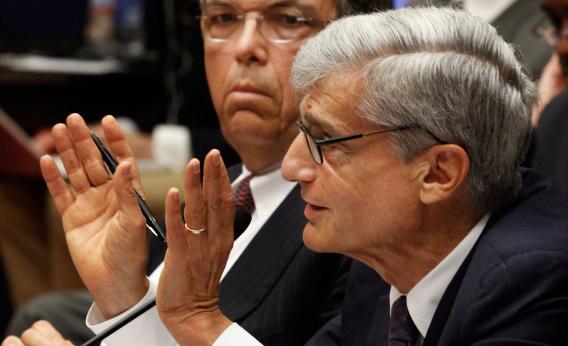The fiscal cliff negotiations aren’t just about plugging holes in the deficit: They are about restoring fairness to our tax code. This should go beyond merely raising the rates on the top 2 percent of income earners—the current line in the sand drawn by the White House.
Two of the fundamental economic problems we need to confront are the increasingly disproportionate percentage of income earned by the top tier, and the underlying lack of demand that is inhibiting economic growth. Fortunately both of these trends can be at least partially reversed in the negotiations now underway, because the tax code—which is surely going to be reformed as part of this process—is one of the best tools we have to confront each of these problems. A couple of data points: First, in 2010, 93 percent of the income that was added to our economy accrued to the top 1 percent of families. Second, corporate earnings as a percentage of GDP are at an all-time high—totaling 1.75 trillion in the third quarter of this year, while wages as a percentage of GDP are at an all-time low—just about 43 percent of GDP.
These data highlight a problem even more serious than our deficit or debt: The lack of demand from middle-class consumers is hindering economic growth, and wage stagnation is leading to the slow decline of the middle class.
It is therefore nice to see that some of the wise members of the old guard—including Robert Rubin, Larry Summers, and John Podesta—have come forward to support tax reform that would move us distinctly in a more progressive direction. They want the capital gains rate to rise to 28 percent—still below the 35 percent now applicable at the top for ordinary income, but above the 15 percent preference it now gets. And they want dividends to be taxed as ordinary income. Along with eliminating the preference that is still given to so-called carried interest, these steps would make the tax code substantially more progressive.
These measures are necessary but not sufficient. Still, it is gratifying to see that a proposed movement toward equalization of capital gains rates and ordinary income tax rates is no longer an issue that evokes cries of horror from establishment economic thinkers. If there is one critical way to level the playing field, it is eliminating the preferences that capital has given itself in the tax code.
